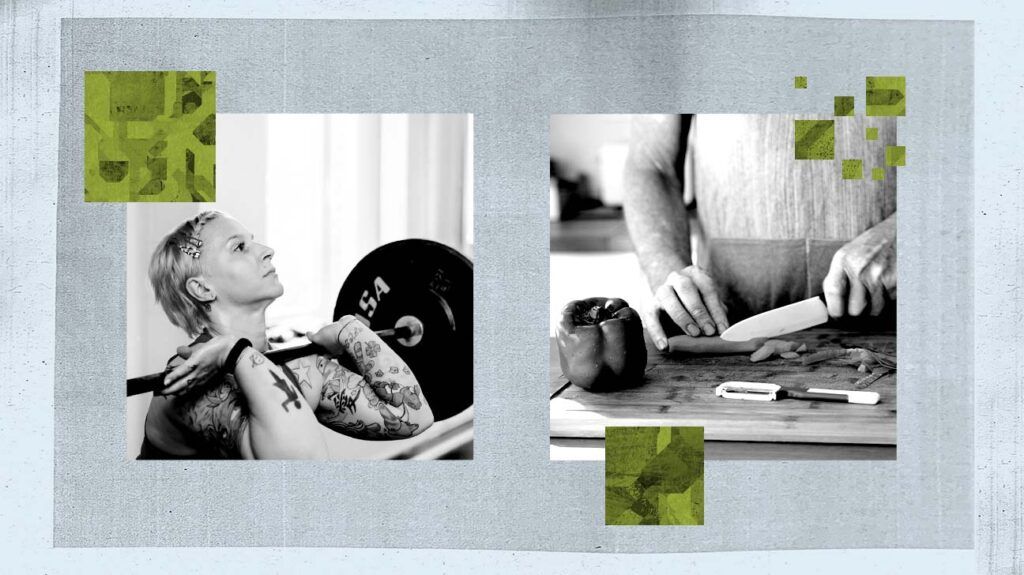Low bone density can increase the risk of fracture. People can increase their bone density through strength training, dietary choices, weight management, and other strategies.
Bone density changes over time. Throughout childhood, adolescence, and early adulthood, the bones absorb nutrients and minerals, gaining strength.
However, as a person enters their late 20s, they reach their peak bone mass, meaning they will no longer gain bone density.
The bones may lose density as a person continues to age. After menopause, in particular, a person becomes susceptible to osteoporosis. Osteoporosis can weaken the bones so much that they can break easily.
This article lists 11 ways to naturally improve bone density, including information on whether it can be too late to increase bone density.
Studies show that weightlifting and strength training can help promote new bone growth and maintain existing bone structure.
A
Review authors highlight that strength and resistance exercises are site-specific. They only increase muscle and bone mass density in areas the exercises stimulate.
Benefits of weight and strength training
- increased bone mineral density
- increased bone size
- protection against bone loss
- improved balance and coordination
- increased muscle mass
Vegetables provide important vitamins, minerals, and fiber. A
Research in a
The authors also highlight research suggesting vitamin C intake may improve bone health and protect against osteoporosis. They list the following vegetables as good sources of vitamin C:
Another
Calcium is the primary nutrient for bone health. As the bones break down and grow each day, it is essential to get enough calcium.
The
Foods rich in calcium include:
Vitamin K2 is essential to bone health. It reduces calcium loss and helps minerals bind to the bones.
Foods that contain vitamin K2 include:
Vitamin D helps the body absorb calcium. People with vitamin D deficiencies have a higher risk of losing bone mass.
A person can absorb vitamin D through moderate sun exposure. Without sufficient vitamin D, a person has a higher risk of developing bone disease, such as osteoporosis or osteopenia.
A moderate weight is essential for bone density. People with underweight have a higher risk of developing bone disease. Overweight and obesity put additional stress on the bones.
Doctors recommend people avoid rapid weight loss and cycling between gaining and losing weight. As a person loses weight, they can lose bone density, but gaining back the weight will not restore bone density. This reduction in density can lead to weaker bones.
Super low calorie diets can lead to health problems, including bone density loss.
Before restricting calories, discuss calorie needs with a qualified healthcare professional, such as a primary care doctor or registered dietitian, to determine a safe target number of calories to consume.
Any diet needs to balance protein, fats, vitamins, and minerals for optimal health.
Protein plays an essential role in bone health and density.
A
However, they associated lower bone mass density with plant protein intake. Researchers call for further studies, particularly into how a plant-based diet may affect bone health and density.
People can talk with a doctor before significantly altering their protein intake.
Omega-3 fatty acids are present in a variety of foods, such as:
People can consume these fatty acids through their diet or supplements.
Like calcium, magnesium and zinc are minerals that support bone health and density.
Magnesium
Foods rich in magnesium and zinc include:
Many people associate smoking with lung cancer and breathing issues, but smoking can also
To support healthy bone density, a person can avoid or quit smoking, especially during their teens and young adulthood.
In moderation, alcohol consumption
However, long-term heavy drinking can lead to poor calcium absorption, a decrease in bone density, and the development of osteoporosis later in life.
Moderate alcohol consumption is
Although the best time to influence peak bone mass and build bone density is from childhood to early adulthood, people can take steps at every age to improve bone health and reduce bone density loss.
Peak bone mass occurs in younger adults. After this point, people gradually lose bone mass.
However, adults and older adults can take the following steps to minimize bone loss:
- get at least 150 minutes of physical activity each week
- consume 1,000 milligrams (mg) of calcium daily, or 1,200 mg for females over 50 years and anyone over 70 years
- get 1,000 international units (IU) of vitamin D daily, or 800 IU for people over 70 years
Below are some common questions about increasing bone density.
What is the fastest way to improve bone density?
Strength training exercises
Is it possible to rebuild bone density?
Bone mass peaks in young adults, usually between 25 and 30 years old. After 40 years old, people start to lose bone mass. However, they can reduce this loss by exercising regularly and eating a balanced, nutrient-dense diet.
Which foods increase bone density?
Dietary intake of calcium and vitamin D
- fish, such as salmon, tuna, and trout
- leafy green vegetables
- dairy products, such as milk, cheese, and yogurt
Some manufacturers may fortify certain foods, such as breakfast cereals, with vitamin D.
Bone density develops throughout a person’s early life, peaking in their late 20s. To support healthy bone density, it is important to consume plenty of calcium, vitamin D, protein, and vegetables.
It is also important to avoid smoking and heavy alcohol use. Taking these steps can help support bone density throughout adulthood.
Read this article in Spanish.
Credit: Source link




